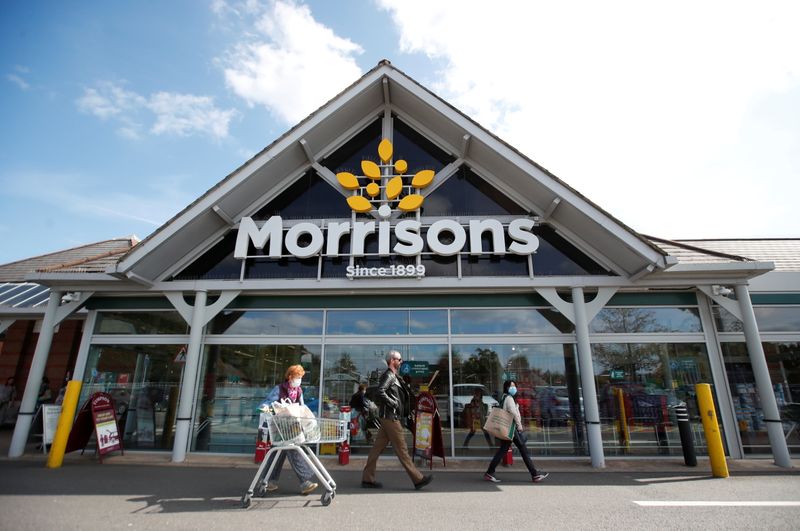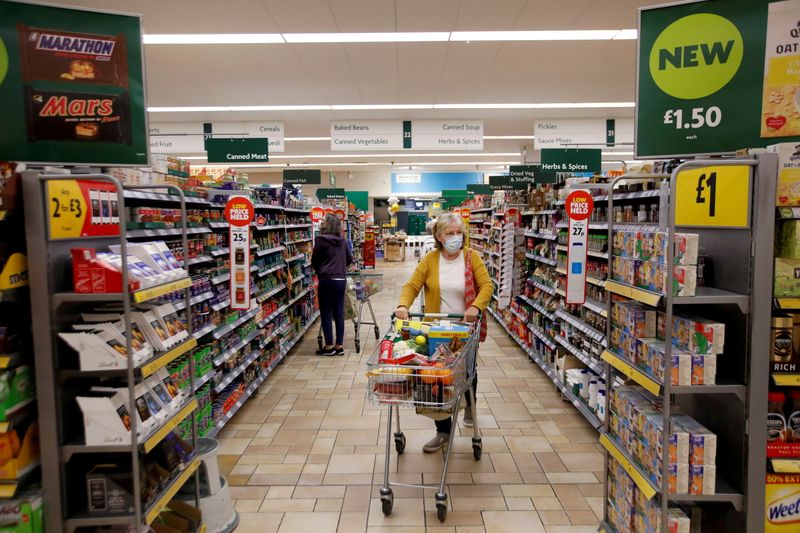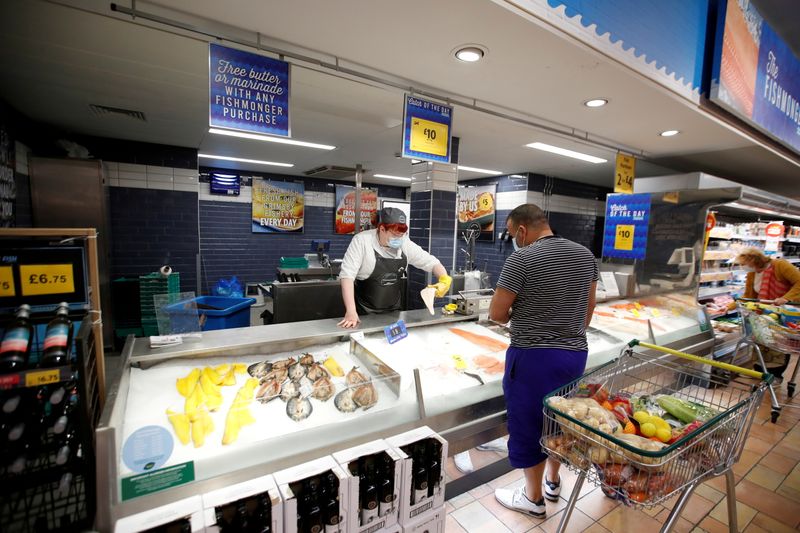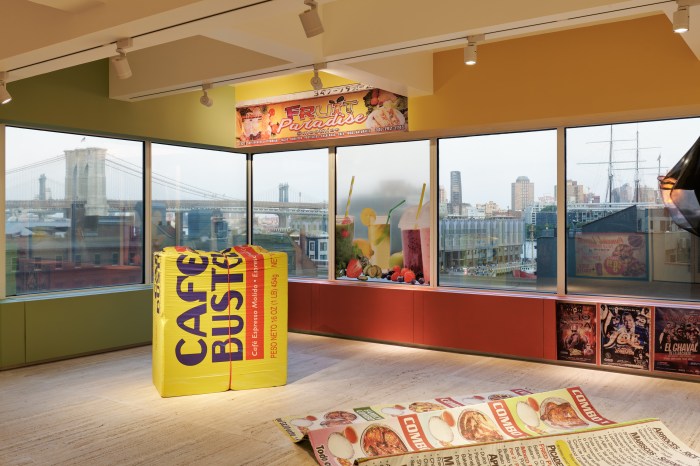LONDON (Reuters) -Morrisons shares surged as much as 35% on Monday on hopes that U.S. private equity firm Clayton, Dubilier & Rice (CD&R) might raise its proposed offer for the British supermarket group or flush out other bidders.
Britain’s fourth-largest grocer by sales behind Tesco, Sainsbury’s and Asda, said on Saturday that it had rejected a proposed 5.52 billion pounds ($7.62 billion) cash offer from CD&R.
The surprise approach underlines private equity’s growing appetite for supermarkets in Britain, attracted by their steady cash generation and freehold real estate assets.
Morrisons owns 85% of its nearly 500 stores and has 19 mostly freehold manufacturing sites. It is unique among British supermarkets in making over half of the fresh food it sells.
It said CD&R’s 230 pence per share offer, which including net debt of 3.17 billion pounds gives Morrisons an enterprise value of 8.7 billion pounds, “significantly undervalued” the group and its prospects.
Shares in Morrisons closed up 61.8 pence at 235 pence in the first day of trading after the offer, which was made at a 29% premium to Friday’s closing price, became publicly known.
“The sector generally looks undervalued, and private equity look to be interested in Morrisons partly because it has a lot of freehold property which they would ‘sale and leaseback’ to generate cash to pay back to themselves,” Andrew Koch, senior fund manager, active equities at Legal & General Investment Management (LGIM), said of the move.
“That’s not adding any genuine value, and the company could do that themselves. So I would personally not expect a bid to succeed at that level,” added Koch at LGIM, which Refinitiv data shows as having a 1.58% stake in Morrisons.
Analysts said they expected CD&R to assess investor reaction before deciding its next move.
Under British takeover rules CD&R, which has former Tesco boss Terry Leahy as a senior adviser, has until July 17 to announce a firm offer or walk away.
Shares in rivals Tesco, Sainsbury’s and Marks & Spencer rose as much as 3.2%, 5.7% and 4.1% respectively on hopes the whole sector was now in play, analysts said, adding that some short sellers were also closing out positions.
Silchester and Columbia Threadneedle, Morrisons’ two largest investors, which Refinitiv data showed having stakes of 15% and 7.4% respectively, both declined to comment.
In addition to the possibility of other private equity players entering the fray, there has long been speculation that U.S. giant Amazon, which has a partnership agreement with Morrisons, could emerge as a possible bidder.
Amazon declined to comment.
With a staff of 118,000, Morrisons is one of the UK’s biggest private sector employers and Britain’s opposition Labour Party warned on Sunday that a private equity acquisition could put jobs at risk.
A spokesperson for Prime Minister Boris Johnson declined to comment on the situation, while shopworkers union Usdaw, which represents Morrisons staff, also had no comment.
SUPERMARKET SWEEP
Industry executives and some sector analysts believe the stock market has failed to recognise the inherent value in Britain’s listed supermarket groups.
They argue that if equity markets do not value them appropriately, acquirers will.
“Investors want a very binary story about knuckling down, keeping capex to a minimum and just becoming a cash machine,” one senior supermarket executive told Reuters.
The executive said it was possible that even Tesco, with an equity market value of 17.3 billion pounds, could receive an approach.
Zuber and Mohsin Issa joined forces with private equity firm TDR Capital to buy a majority stake in Asda from Walmart in a deal valuing the group at 6.8 billion pounds.
That deal completed in February and followed the competition regulator’s blocking of Sainsbury’s takeover of Asda in 2019.
In April, Czech billionaire Daniel Kretinsky raised his stake in Sainsbury’s to almost 10%, igniting bid speculation.
($1 = 0.7243 pounds)
(Reporting by James DaveyAdditional reporting by Simon Jessop, Thyagaraju Adinarayan and Elizabeth Piper; Editing by David Goodman, David Evans and Alexander Smith)


























